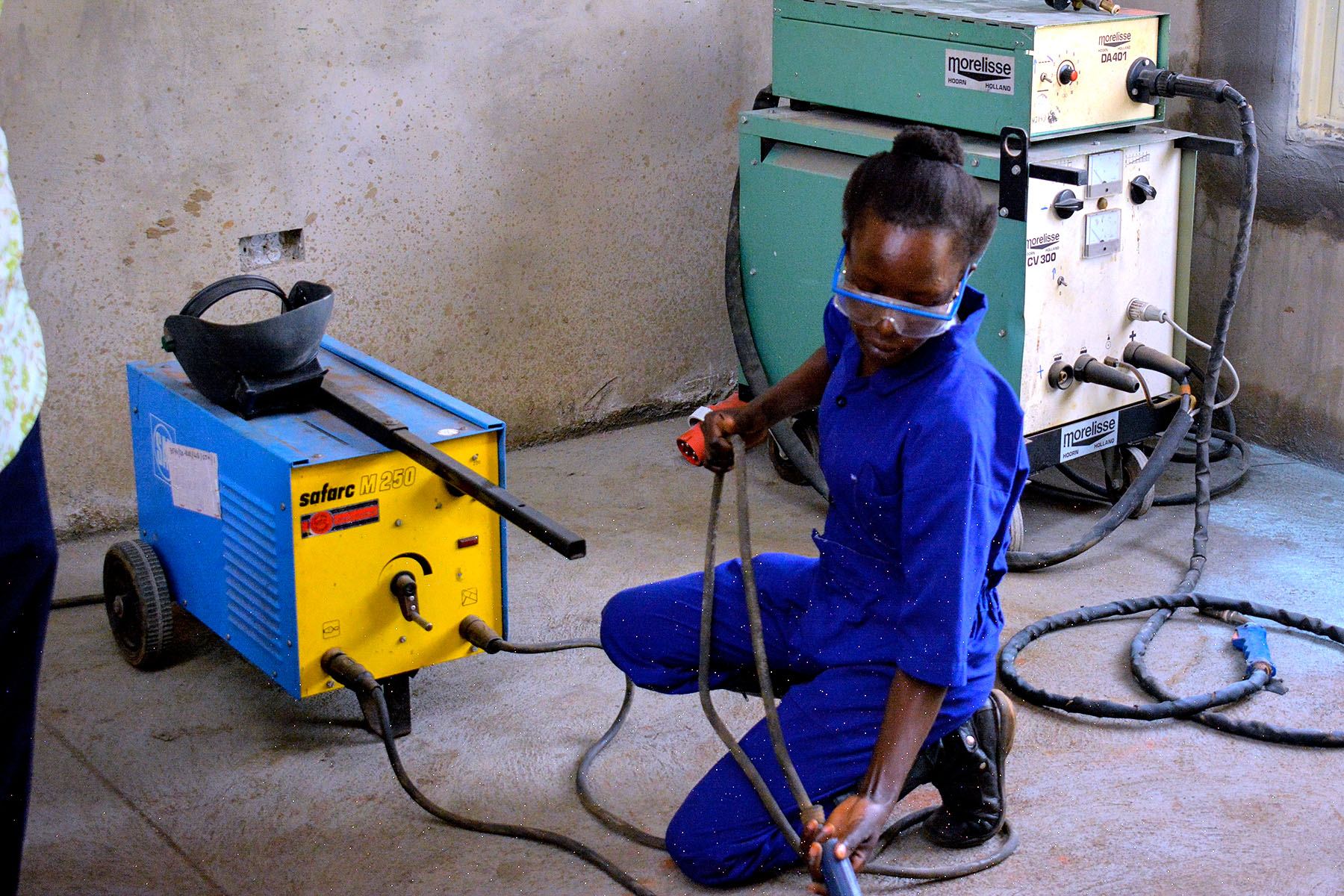

This course produces welders and fabricators who are relevant to the industry and world of work.
The delivery is learner-centered and competence-based with emphasis on practical teaching, projects and acquisition of skills by the learners.
Learning outcomes:
The graduate technician, should be able to:
- Ensure safety of workers and plant.
- Weld components.
- Fabricate components
- Carry out foundry works
- Maintain workshop tools and equipment
- Supervise and inspect works
- Initiate and manage small business enterprises
Duration of the course
NCWF is a full-time course taught in two academic years. Each academic year consists of three termsof teaching, continuous assessment, practical and written examinations. At the end of each academic year, trainees carry out industrial training which is a core module and lasts for at leastsix weeks.
Entry requirements:
The minimum qualifications for NCWF are as follows;
- A Uganda Certificate of Education(UCE) or its equivalent.
- Uganda Junior Technical Certificate(UJTC) or Community Polytechnic Certificate or its equivalent.
- Prospects for National Certificate in Welding and Fabrication
NCWF graduates may opt to further their skills and education by offering a diploma and eventually a degree in any of the following areas:
- Mechanical Engineering
Modules
- Light duty welding (Non critical)
- Non fusion welding and cutting operations (soldering, brazing and gas cutting)
- Structural/Pipe welding and fitting (Heavy duty)
- Welding inspection
Award
A certificate of competence is awarded to the trainee upon successful completion of each course.
A learner who completes the course with at least 2.0 cumulative grade points Average (CGPA) in all modules is awarded a classified ‘National Certificate in Welding and Fabrication’ by the Uganda Business and Technical Examination Board(UBTEB)
